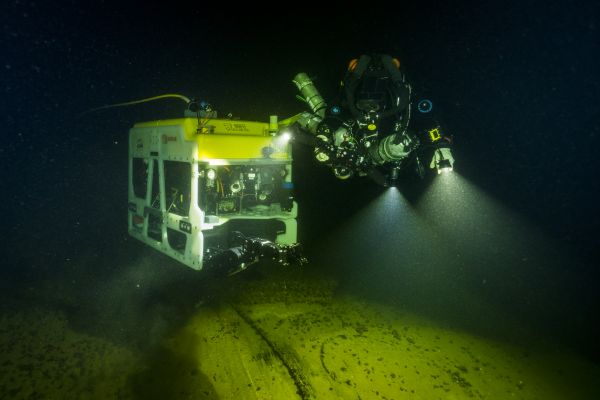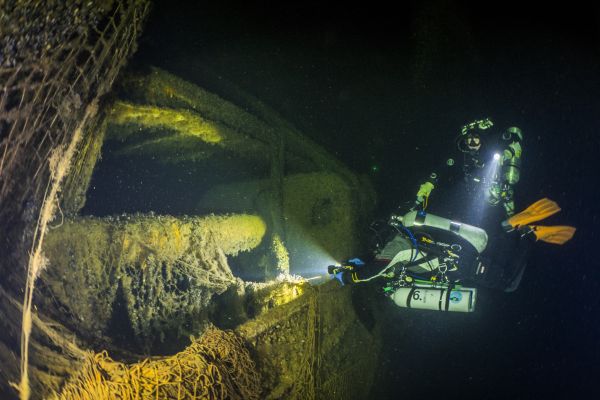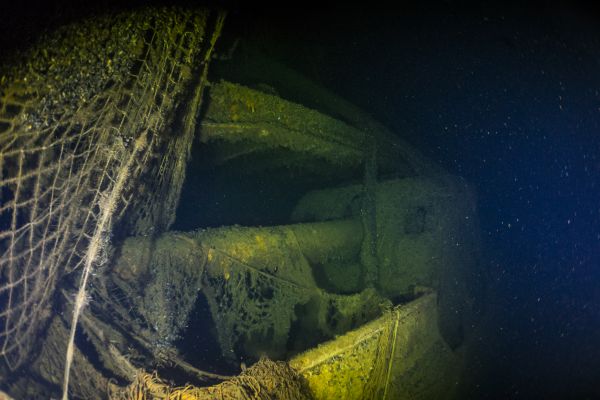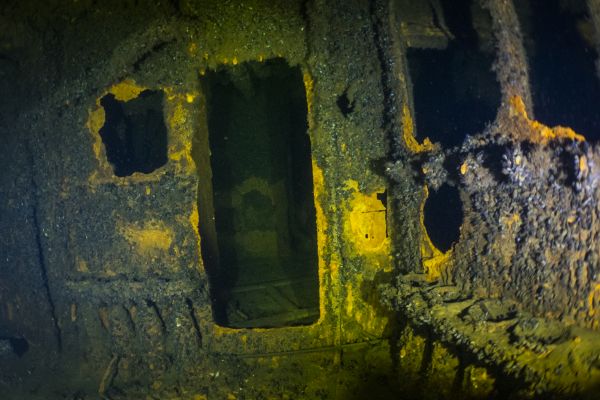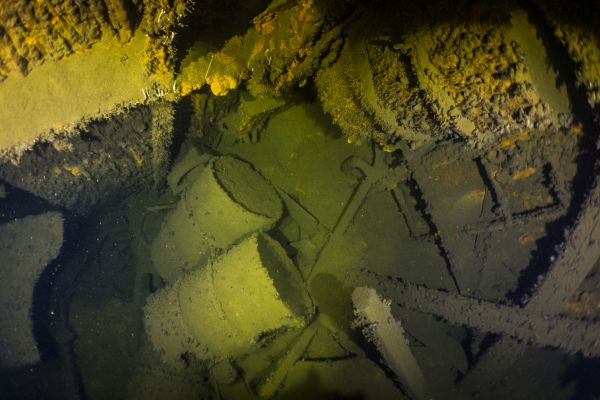BALTWRECK Conference: Preventing massive marine waters chemical pollution from the leaking wrecks and munition/weapon dumps in the South Baltic
BALTWRECK Conference: Preventing massive marine waters chemical pollution from the leaking wrecks and munition/weapon dumps in the South Baltic was organised by the Institute of Fluid-flow Machinery of the Polish Academy of Science, in cooperation with the Klaipeda University and the MARE Foundation. The conference was another step towards initiating the cleaning of the Baltic from the remains of the IWW and IIWW lying on its bottom. We attach great importance to the fact that topics related to the threats posed by fuel leaking from wrecks and dumped chemical and conventional munition/weapons are receiving more attention in recent years, both from scientists and technological sector.
The conference was organised in three thematic blocks. The first one referred to methods of mapping and identifying potentially dangerous objects on the seabed. Benedykt Hac, Miłosz Grabowski from the Oceanology of the Polish Academy of Science, Olga Sarna, the chair of the MARE Foundation and Nerijus Blazauskas from the Klaipeda University made presentations.
The second block addressed spreading patterns of hazardous substances after leakage and their toxic impact on the environment. We could listen to the interesting presentations by Roberta Valskienè (Lithuanian Nature Research Centre), Edmund Meser (Institute of Toxicology and Pharmacology for Natural Sciences) and Aaron Beck (GEOMAR Helmholtz Centre for Ocean Research Kiel).
The third block focused on pre-identification of technologies available to treat underwater chemical pollution, i.e. fuels and chemical munition. In-situ decomposition of fuel pollution using dedicated bacteria was presented by the Maritime Institute in Gdańsk. Benedykt Hac presented methods for decomposition of chemical munition. Fredrik Lindgren from the Swedish Agency for Marine and Water management presented good practices used in Sweden in relations to the treatment of chemical pollution.
The conference was an opportunity to broaden the knowledge and discuss with experts. The examples of measures implemented in Sweden were particularly inspiring. These measures indicate how important and effective are preventive actions aimed at removing fuel from wrecks before any uncontrolled leak occurs. Review of the impressive technological development of the maritime sector allows us to believe that cleaning of the Baltic seabed of hazardous substances is still a huge but achievable challenge. This conference gave us the possibility to present the problem from a social perspective. Dangerous wrecks are one of the priorities for the MARE Foundation and we can to observe how much fear, but also social engagement they evoke among the Poles, as well as citizens of other Baltic countries.
Comprehensive scientific expertise and technological developments are key starting points for discussions with decision-makers for whom addressing the problem of hazardous substances lying at the Baltic seabed should be one of the priorities. We hope that preventive actions similar to those undertaken in other Baltic countries, protecting not only the environment, but also human health and coastal economy will soon be initiated in Poland.
Fot. Michał Czermiński, Sławomir Paćko


